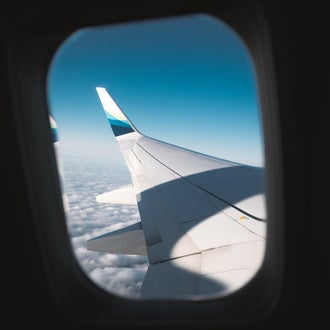I heard that there is a risk of getting sunburnt on airline flights. Should we be wearing sun protection when travelling on a plane?"
There is no credible evidence to suggest passengers can get sunburnt on commercial airline flights, so Cancer Council does not recommend the need for sun protection. Excessive exposure to ultraviolet (UV) radiation contributes to the development of melanoma and other skin cancers. Ultraviolet rays from the sun are divided into two types: UVA and UVB. UVB, which penetrates the top layers of the skin, causes sunburn and is the major cause of skin cancer. UVA penetrates deeper into the skin causing damage to the skin collagen and elastin, resulting in premature skin ageing and can also cause skin cancer.
A study in 2015 found that, compared with the general population, pilots and cabin crew had around twice the rate of melanoma. However, it was not clear if this was caused by exposure to UV radiation on the ground during leisure time, or in the aircraft during flight. Other factors such as repeated exposure to cosmic radiation and disruption of circadian rhythms, could also contribute to the elevated rate of cancer in airline crew. UV radiation increases with altitude and while some commercial aircraft windshields let through a small amount of UV, more modern aircraft windshields provide almost a total block. Where UVA does penetrate the windshield, it may have an impact on the melanoma incidence of pilots, however more research is needed to establish this link.
Windows in the passenger cabin are generally constructed of three layers of plastic. These materials are highly effective at blocking both UVA and UVB, ensuring passengers are not at risk. The majority of melanomas are the result of repeated exposure outdoors to UV radiation without the use of sun protection.
Cancer Council recommends that when UV levels are 3 or above you seek shade, wear a hat that covers the head, neck and ears, wear sun protective clothing and close-fitting sunglasses, and wear an SPF30 or higher sunscreen. You can also download Cancer Council’s free SunSmart app to keep track of UV levels throughout the day.

